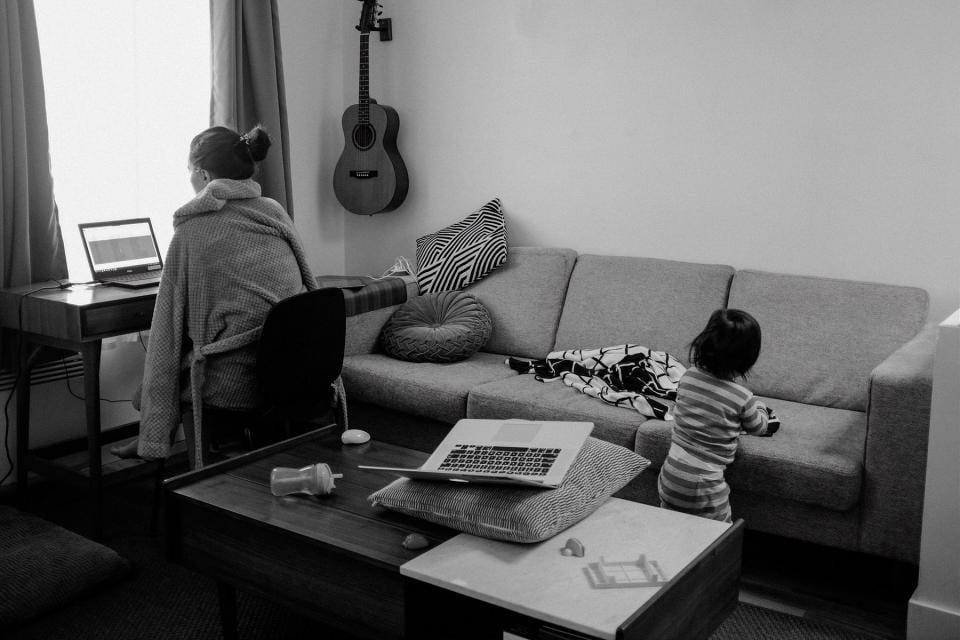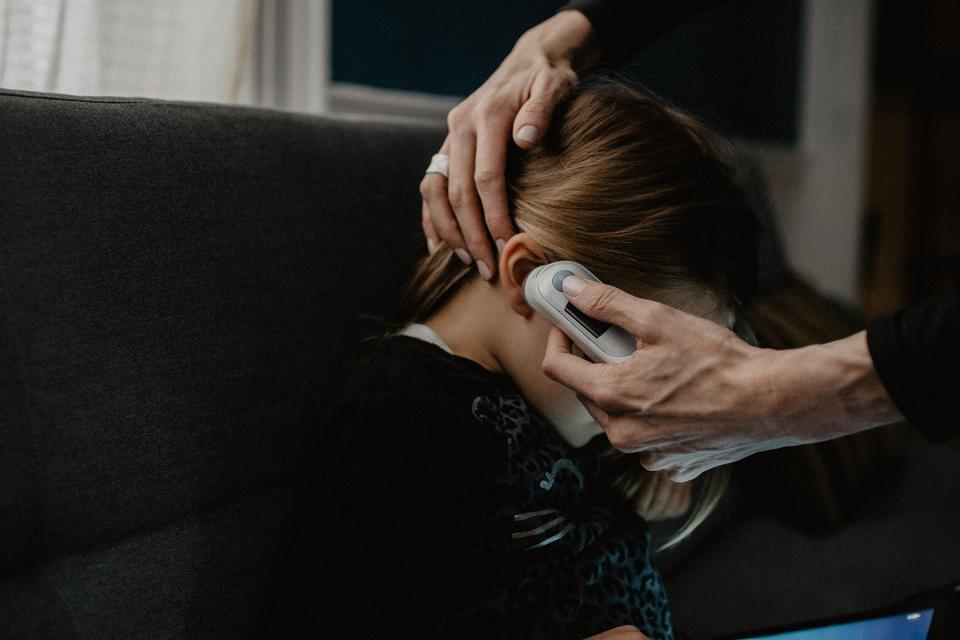Co-parenting During COVID: A mediator's comprehensive guide

Photo by Charles Deluvio on Unsplash
To suggest that we are living through extraordinary times does not quite capture the extent of the challenges we face. It can be difficult enough to organize our lives under normal circumstances; but with the current reality of having to process new, complex, and often troubling information daily, it can feel impossible.
It is as though one moment we have reached consensus on how to navigate our days, then moments later, we have to change our behaviors. For example, many families probably experienced a scenario where a child left school on a Friday, fully expecting them to return the following Monday morning, only to discover over the weekend that schools would be closed for the foreseeable future. Any plans that were made before that announcement, often late on a Sunday, suddenly vanished, and families had to adapt quickly.
Outlined below are some ways that may benefit families in this difficult time. While this is by no means exhaustive and may not apply to all families’ circumstances, we hope that it is a useful guide to try to help promote effective co-parenting in this troubling time.
Follow court order/parenting time schedule as closely as possible
Sometimes the easiest option is to stay the course as much as possible. For most, it is unlikely their order contains clauses discussing pandemics; but it is likely that with some simple modifications, co-parents can adapt to these circumstances.
For example, if exchanges typically fall in line with school, continue to follow the same exchange times and exchange in the school parking lot, if necessary. Consistency will provide your child with a sense of security that likely has been shaken. But for families with non-traditional exchange locations or times, flexibility may be necessary for developing a temporary plan.
Review executive orders for your state
An important consideration is whether or not government mandates regarding “shelter in place” or “social distancing” impacts a court order. Some jurisdictions have provided directions about continued adherence to custody and parenting time orders/plans, making it clearer for families in those areas.
For jurisdictions that are silent on this issue, however, determining what restrictions are ordered and making modifications may be challenging. If the mandates are very restrictive, speak with a lawyer or conflict resolution professional, if possible, to determine the best course of action.

Photo by Kelly Sikkema on Unsplash
Log information about your family to plan for potential exposure
If a parent and/or child becomes exposed to someone with COVID-19, this information should be shared immediately. Keeping a log of with whom the child has contact and being transparent about their own exposure will be vital.
Parents should try to agree about how they will limit potential exposure, what they will do if a family member exhibits symptoms, and how to proceed regarding medical care and parenting time. This will be particularly important for parents who are health care providers or other essential workers at a higher risk of exposure.
It would be reassuring for a parent to hear information such as:
- whether or not parents who are essential workers are wearing personal protective equipment
- what they do when they return home
- how they are limiting their child’s risk
For essential workers, the difficult decision to reduce contact with their child may be made early or an agreement may include that if the parent begins to experience symptoms, then parenting time will be suspended.
Accept the reality that parenting time might be suspended
Once it is clear exposure has occurred (or for essential workers, perhaps when symptoms are present), it may be necessary to reduce or suspend parenting time. The mandates from the government and health organizations are clear: reducing spread is a priority and quarantine will be necessary.
This could mean that, if they were not also exposed, the child does not have contact with an exposed/symptomatic parent for a minimum of 14 days, instead residing with their other parent.
If the child was likely also exposed, or exposed their parent or others, a plan must be made about what parenting time can occur. For those with parenting time that is limited or does not include overnights, this might not be an option for myriad reasons such as:
- safety concerns
- scheduling challenges
- issues with transportation
- distance between homes
The reality is that the children may not be moving back and forth due to any number of potential hurdles, in addition to exposure; but communication about the status of the children’s health and who is providing care should still be shared. The parent whose contact will be suspended must accept that this is not only in the best interests of their children, but also in line with current authority on how to reduce the spread and continued exposure.
If a parent or child or others in the individual homes are considered high risk, this all may need to be planned well before any exposure occurs. Consulting with a health care provider about what precautions should be taken to protect those who are vulnerable is encouraged.

Photo by Charles Deluvio on Unsplash
When parenting time cannot occur, be creative about contact and generous with make-up time
Circumstances that do not allow for regular parenting time are bound to occur. Whether your child or co-parent becomes ill and must quarantine, you work in a crucial field that requires regular contact with the public, or you live with an elderly parent or person who is considered vulnerable, your parenting time may need to be put on hold.
While it may be difficult to accept this reality, it is much better to forego some time with your child than to unnecessarily expose anyone to COVID-19. And escalating conflict to assure that you get your parenting time will almost certainly add to your child’s stress and anxiety.
Remember, it is possible to maintain contact with your child without them physically being in your care.
- Video Chat. Whether it’s FaceTime, Skype, or the newly ubiquitous Zoom, video chat can support meaningful connections. You can read a book, play a game, or simply say goodnight to your three-year-old or check-in about your sixteen-year old’s day.
- Text messages/email/social media. A quick message, like, comment, or picture lets your kids know that you’re thinking about them.
- Phone calls. Although they may not be used to chatting on the phone, hearing your voice might give them much-needed support and assurance.
- Arts and Crafts. Encourage your child to be creative during this time and make things that can be sent to your co-parent. Off-duty parents can do this too, or write letters, as children often enjoy receiving things in the mail!
Making up missed parenting time
Your parenting plan, divorce decree or custody order may have language regarding making up missed parenting time. If that works for your family, go ahead! However, it is fair to presume that a pandemic was not included as a consideration for make-up time.
If you miss a month of parenting time due to current circumstances, it may not be best for your children to spend an entire month with you once things stabilize. Both parents should make a good faith effort to maximize the opportunities to engage with children to every possible extent.
Be understanding about the financial and social constraints of your co-parent
Millions of people have had significant disruptions to their income. Your co-parent may have experienced job loss, a cutback in hours, or may suddenly be the sole earners for their household. This may impact child support payments and/or shared expenses for the children.
While there is no doubt that this might be frustrating, provoke anxiety, and put more stressors on your co-parenting relationship, it is not a reason to limit or alter parenting time.
The financial aspects of your co-parenting relationship are separate from the bonding and developmental needs that your children require. It may take weeks or months to identify resources that will help provide financial stability. Your children’s immediate emotional needs are the highest priority.
Beyond the financial strain, social routines are no doubt disrupted. If a family is used to regular trips to either sporting or cultural events, those are no longer options. Places like movie theatres and libraries are closed for the time being.
Most parents, especially those who may have less than equal parenting time, count on those activities. If a parent who lives a fair distance away has midweek evening time and usually takes the children out to dinner to avoid a lengthy commute, eating out is no longer an option. Some parents may agree to expand that parenting time to allow for some time in the other parent’s home. Other parents may decide to forego that parenting time as not to expose anyone to COVID-19 unintentionally. Recognizing these constraints and adapting to them will be key to co-parenting successfully.

Photo by Jason Jarrach on Unsplash
Modeling behavior and developing consistent messaging
Adapting to rapidly changing expectations and mandates, being flexible and supportive of each other, and limiting conflict will help reduce everyone’s anxiety. The seemingly relentless uncertainty that we are all experiencing is difficult enough for your children to understand and process. Exacerbating their worries by engaging negatively with your co-parent will only make a difficult situation worse.
If you experienced regular conflict prior to the pandemic but are now able to cultivate a healthier dynamic, that would be great behavior for your children to observe. Ideally, this would also improve your co-parenting relationship moving forward.
It will also benefit your children to have consistent messaging from you both about what is currently happening in your community and throughout the world. You and your co-parent may have different perspectives on the challenges we all face; however, putting those differences aside and giving clear and supportive answers to any questions can help put your children at ease.
Use Alternative Dispute Resolution where available
If all else fails and you and your co-parent cannot resolve the challenges you face regarding your children, check your local resources to seek aid. Many jurisdictions, agencies, and family law firms are offering remote services to help families navigate these difficult times.
These suggestions were solicited by OurFamilyWizard to support the countless number of families who are experiencing such great adversity for the first time. OurFamilyWizard joins a number of family law related organizations throughout the country who truly want to meet families’ needs. The authors of this piece work for Hennepin County Family Court Services. At HCFCS, we communicate with our supervisors and peers daily to solicit ideas and offer innovative solutions to the families that we serve. Reaching out to organizations in your community to obtain valuable services to help reduce conflict and help your family move forward is key to making it through this unprecedented time.
Author's Bio:
Zak Chesson has been an evaluator/mediator with Hennepin County Family Court Services since November 2017. Prior to Family Court Services, Mr. Chesson was Coordinator fo the Ramsey County Guardian ad Litem program. From 2006 to 2017, Mr. Chesson was an ICWA certified Guardian ad Litem in Hennepin County working with both Juvenile and Family Court.
Kathryn C Stevens has been with Hennepin County Family Court Services since September 2016. Prior to joining Family Court Services, Ms. Stevens worked as an attorney/Guardian ad Litem in child welfare cases and as a public defender for juveniles in delinquency cases in Iowa. Ms. Stevens also facilitates Advancing Racial Equity training for the Department of Community Corrections and Rehabilitation.
NOTE: Many state and federal laws use terms like ‘custody’ when referring to arrangements regarding parenting time and decision-making for a child. While this has been the case for many years, these are not the only terms currently used to refer to these topics.
Today, many family law practitioners and even laws within certain states use terms such as ‘parenting arrangements’ or ‘parenting responsibility,’ among others, when referring to matters surrounding legal and physical child custody. You will find these terms as well as custody used on the OurFamilyWizard website.

